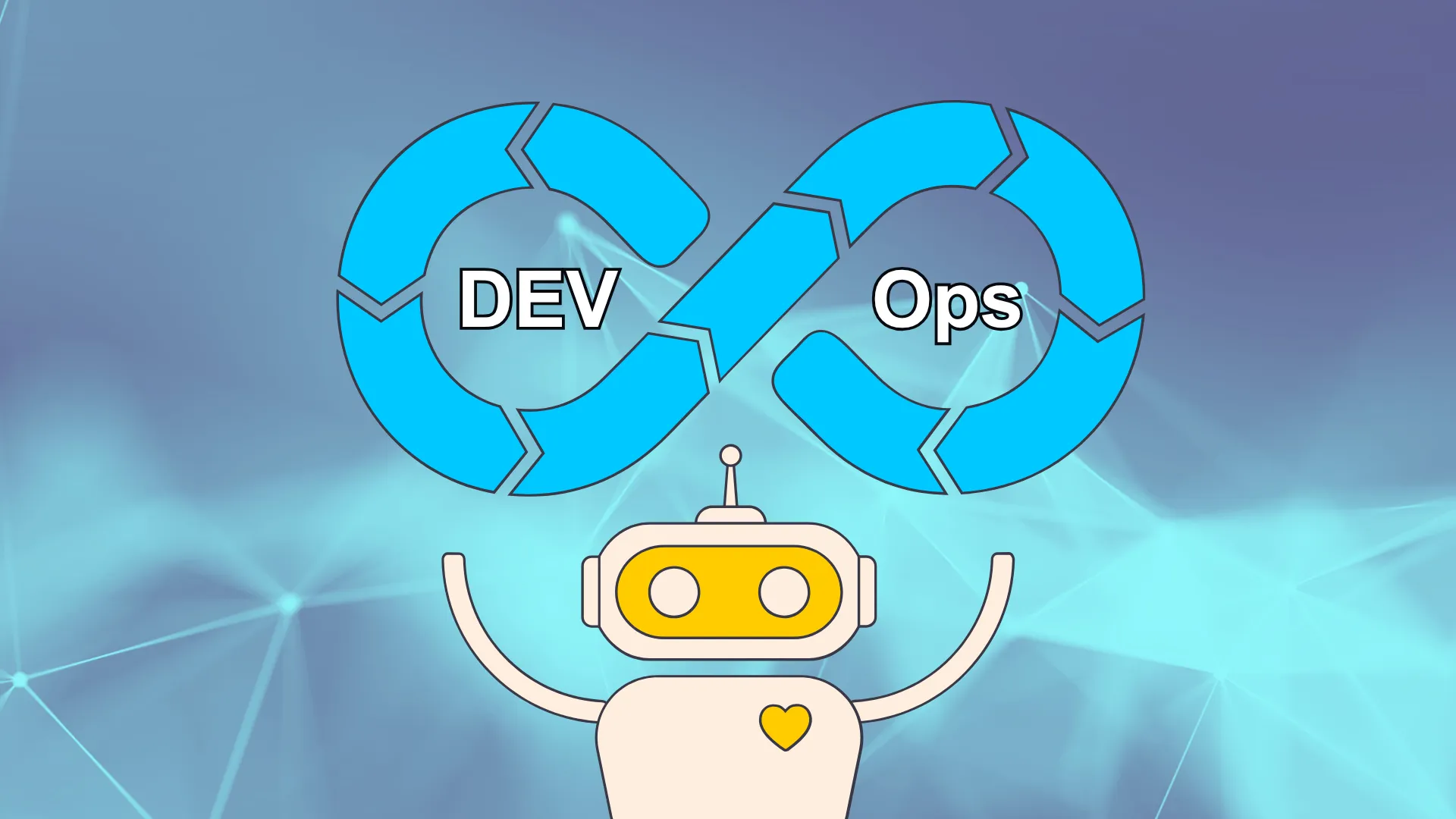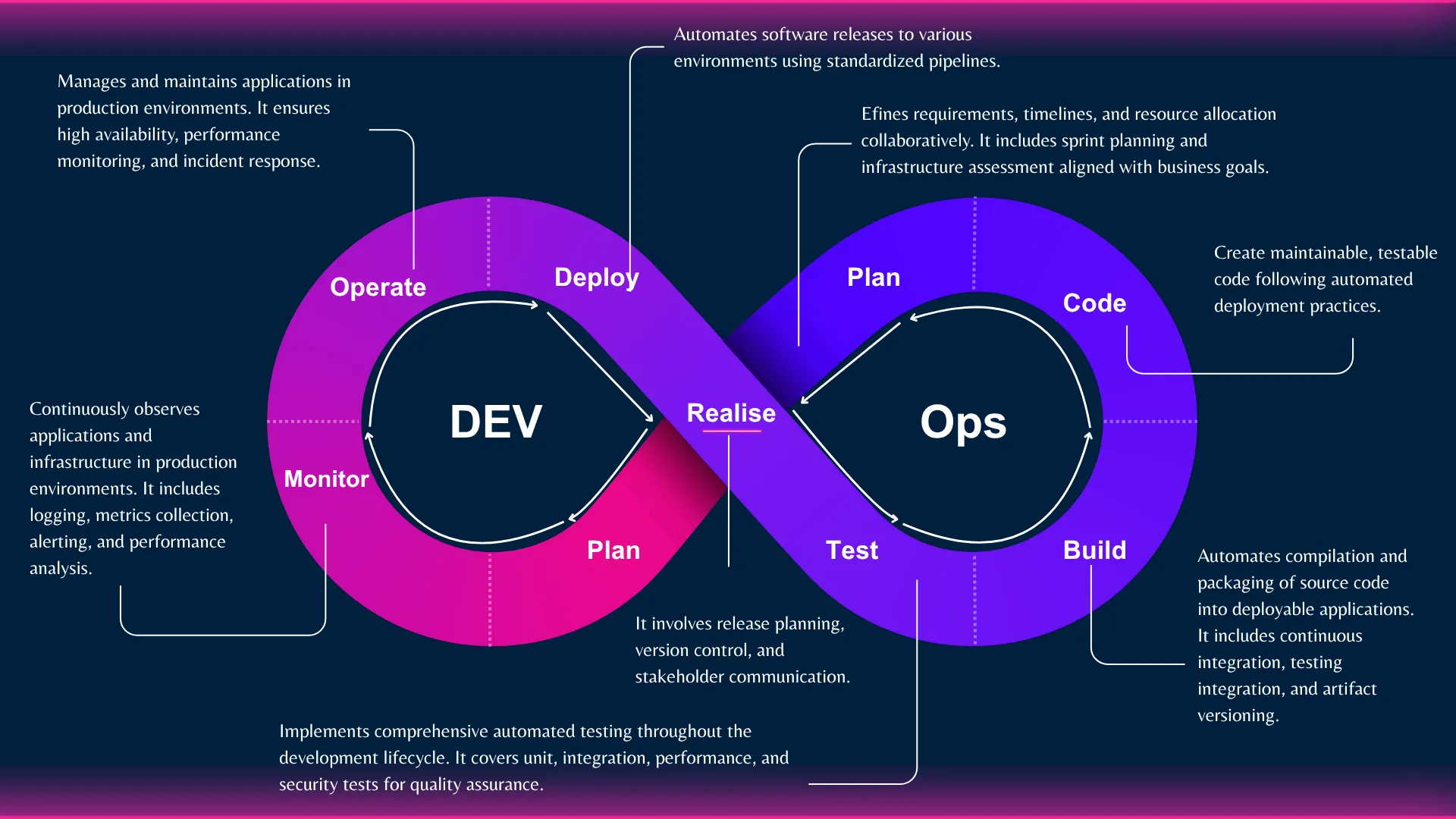DevOps as a Service: What It Is, How It Works


The teams have an approach to each programme project that has been proven over the years. Development methodologies are significant for the software implementation process, as they set the concept and pace of work. The DevOps approach is very different because it is both a methodology and a set of practices/technologies. DevOps stands for “Development” and “Service” and it means the development approach aims to shorten cycles and deliver releases more frequently without sacrificing software quality by automating processes between IT teams. DevOps as a service (DaaS) is the outsourcing or transfer of DevOps practices and solutions to an external team or company that provides implementation and support of DevOps processes at the customer’s premises.
DevOps in IT industry offers several practices that are the main tool for achieving the goals of this methodology. They are determined by technical factors, so implementing DevOps solutions requires specialised knowledge. Development and operations help stabilise and organise development cycles, ensuring that projects are completed on time and to the customer’s satisfaction.
Key components of DAAS configuration:
Continuous integration (CI) is inextricably linked to continuous delivery (CD). CI ensures compliance with repository update processes and requires approval of each such change. CD is responsible for the automated deployment of changes made to the software code. The tools used are Jenkins, Ansible, Docker, Kubernetes. GitLab CI/CD, Travis CI.
The role of testing in the development process cannot be underestimated. This complex, meticulous process requires attention to the smallest details. Test automation is provided by DevOps service and solutions for modular testing, integration testing, and end-to-end testing. Tests are performed with every change to the code base, and any bugs found can be fixed immediately.

Docker and Kubernetes are used for containerisation to standardise the runtime environment across all stages of development and production. These practices are responsible for scaling, load balancing, and container management to ensure high service availability and reduce infrastructure deployment and maintenance time.
Setting up monitoring, logging, and convenient management is the task of DevOps specialists. The company uses Puppet, Chef, and SaltStack tools to automate the deployment of its web application in multiple environments. Using Ansible to create configuration scripts, they efficiently configure dependencies, databases, and application service components, ensuring consistency across environments.
Cloud integrations (AWS, Azure, GCP) help streamline the automation process by creating and scaling the appropriate infrastructure. They also provide an environment for development, testing, and production in a single infrastructure. Works well with CI/CD tools. DevOps platform as a service (PaaS) often acts as a separate service, offering customers the opportunity to combine the cloud environment with software.
Infrastructure as code, also known as IaaC, is one of the practices used when implementing tightly controlled large projects with flexibility requirements. IaaC solutions allow developers to build a scalable IT environment that is adaptable to change.
SDLC, or secure software development lifecycle, highlights the implementation of security methods throughout the entire product development cycle. The practices mentioned above help to achieve this. DevOps specialists identify vulnerabilities using Snyk, SonarQube, and OWASP ZAP tools. Compliance with security standards during software development has long been a default requirement.
Businesses and entrepreneurs may not understand the power of DevOps. What are the reasons and why use DevOps? The short answer: to optimise and improve software. But there are more reasons to implement DevOps solutions in a project.
In-house DevOps – when a business creates its own department and hires employees to solve development tasks using the company’s existing resources. DevOps as a service – provided as an outsourced service. This is when a business delegates development tasks to an external service provider, and software development is carried out using the provider’s resources.
For example, during project development, the internal team may face a shortage of resources or people. Finding qualified specialists and integrating them into the team and the project takes time. And there is no guarantee that the hired specialist will remain in the team. When outsourcing developers, this problem disappears. The company that assigns the team has a reserve of specialists and, in extreme cases, a source for finding qualified specialists. This significantly reduces the risk of errors and, accordingly, saves time and money.
The outsourcing team can competently provide DevOps services and solutions directly thanks to their experience. The dedicated team from the IT service provider has worked on other projects and already has established processes in place, is prepared for force majeure situations and is ready to find alternative solutions. This also affects internal processes, as the developers already have shared communication experience and communication is well established.
Access to technologies and tools. When outsourcing DevOps services, businesses do not need to purchase licences/subscriptions or provide developers with the software they need for their work. Your IT department already has the necessary tools.
Even if the customer also operates in the IT industry, it is not cost-effective to hire a DevOps team to implement just one project.
We have just looked at why to use DevOps, the advantages of DaaS, and why outsourcing partnering is better than the in-house model. But the question of when DevOps solutions need to be integrated remains open. It all depends on business needs, and even a start-up project may require technological specialists. However, certain factors will help shed light on this issue.
Project expansion or business needs. The case for implementing DaaS is scaling, which entails the need for automation. Within the software product, this could be the expansion of test environments, an increase in the number of microservices that require independent management, or integration with external APIs or services that require reliable orchestration.
Updating an outdated system or software. The reason why DevOps is important is its agile properties. Every software product reaches a point where it needs to be changed, especially in such a technologically advanced environment. Updating an outdated system is a complex, multistep process. DevOps as a Service optimises this stage. Developers need to update technologies, modify the architecture, add new functionality, remove obsolete solutions, and so on. The DevOps approach is relevant in such conditions.
Limited internal resources. In the case of start-up projects, small technology companies and enterprises in other industries, limited resources are a common problem. The costs of equipment and hiring internal staff are high, and the process is risky. Therefore, businesses turn to outsourcing.
Short project implementation times. DevOps as a Service enables companies to significantly accelerate the implementation of modern engineering practices, especially when resources and time are limited. Instead of spending effort on infrastructure configuration, process automation, and monitoring, teams can focus on developing key product features and achieving business goals. Given the complexity of the DevOps approach and constantly changing tools and standards, engaging external experts allows you to avoid mistakes, save time. Business maximizes the benefits of the latest practices without having to keep track of all technical changes yourself.
High project requirements. Organising the team and the technological environment is critically important, especially when it comes to complex and dynamic projects with numerous requirements right from the start. In such cases, the DevOps methodology becomes a real lifesaver. The involved experts can develop the DevOps process from scratch, ensuring its reliable functioning throughout the entire software product development lifecycle.

Given the growing demand for DevOps in IT industry, companies are increasingly turning to external specialists or DevOps as a service to implement modern practices quickly and without compromising quality. If your project requires control and high-quality infrastructure, you can hire an outsourced DevOps team. What should you look for when choosing a technology partner?
Search for potential partners. Search for companies on specialised platforms, on the internet, and through other partners. Review the website, the company’s specialisation, and how it positions itself. Familiarise yourself with the available portfolio.
Request a consultation. Select a number of companies and send them a request. Tell them about your project and general requirements. This will help you understand whether the company meets your requirements and is potentially ready to take on your project.
Find out about the technology stack. You can review this on the website and analyse the portfolio. Or you can ask about the available technology stack in your request. We mentioned the tools in the section: “DevOps as a service: how does it work?”. The availability of Python, Java, C++, Ruby, and JavaScript developers is another key criterion.
Expertise and certification. Your potential DevOps partner should have experience working with AWS, and DOEF certification would be an advantage.
Internal processes and approach to cooperation. Pay attention to how the company organises its work: what project management approaches it uses, how communication with the client is established, and whether there is a transparent reporting system.
Request for Proposal. Send a request and technical requirements for your project for evaluation by companies with which you see a successful partnership.
PNN Soft specialises in the development of custom projects for large and medium-sized businesses. We provide full-stack development and project solutions. Among our available services is a dedicated team for DevOps services. We develop DevOps process from scratch, integrating automation, CI/CD pipelines, monitoring, and infrastructure as code to ensure continuous delivery, stability, and scalability of your software product.
We hope you are now in no doubt as to why DevOps is important. If you are looking for a reliable and well-versed in DevOps development company, don’t hesitate to contact us.